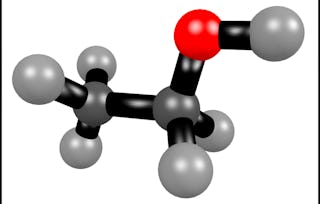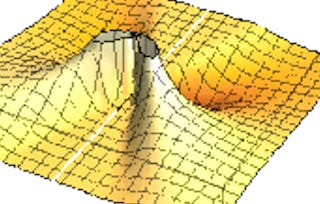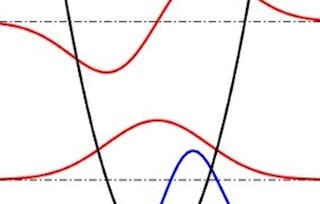The aim of this course is to give a thorough introduction to Density Functional Theory (DFT). DFT is today the most widely used method to study interacting electrons, and its applicability ranges from atoms to solid systems, from nuclei to quantum fluids.

Density Functional Theory

250 reviews
Recommended experience
What you'll learn
Foundation (mathematical and historical) of DFT, approximation strategies.
Quality and accuracy of different approximations, practical procedure to solve the equations.
Ready to be operative and use DFT for your own research
Skills you'll gain
Details to know

Add to your LinkedIn profile
See how employees at top companies are mastering in-demand skills

There are 3 modules in this course
This week will introduce the Density Functional Theory concepts. The week starts from an introduction to the many-body problem, and how things could be reformulated using the electron density. We will focus on observables, in particular those most directly related to the density. Finally we will discuss the Hohenberg-Kohn theorems. A little historical detour is taken at the end, where we will follow the footprints of the first steps to introduce a functional of the density in quantum problems.
What's included
13 videos7 readings7 assignments
This second week introduces the Kohn-Sham world, a weird and very efficient world in which independent particles are governed by equations that give the exact density. At least, in principle, for the potential felt by the independent particle is unknown, as well as pathological. Again, a brief historical point of view ends the module.
What's included
10 videos5 readings4 assignments1 peer review
This third week tackles some more practical aspects of DFT. In particular the strategies for approximating the unknown exchange-correlation potential. Two other important points are the concept of band-gap and the practical scheme to solve the KS equations, via a self-consistent approach.
What's included
11 videos8 readings1 assignment
Instructors

Offered by
Explore more from Physics and Astronomy
 Status: Free Trial
Status: Free TrialUniversity of Colorado Boulder
 Status: Free Trial
Status: Free TrialUniversity of Colorado Boulder
 Status: Free Trial
Status: Free TrialUniversity of Colorado Boulder
 Status: Free Trial
Status: Free TrialUniversity of Colorado Boulder
Why people choose Coursera for their career

Felipe M.

Jennifer J.

Larry W.

Chaitanya A.
Learner reviews
- 5 stars
86.80%
- 4 stars
11.20%
- 3 stars
1.20%
- 2 stars
0.40%
- 1 star
0.40%
Showing 3 of 250
Reviewed on Jun 18, 2022
more application base examples should be thaught this course was more theoritical and after completing my course I still dont know how to implement on my work
Reviewed on Aug 6, 2022
Very advanced courSe focused on the basics and development of DFT but the course should be a bit on how to use DFT practically
Reviewed on Oct 30, 2025
It was a great experience. Simply, we run the program like VASP, QE, and so on. But the background of the coding is more important. The fundamentals of DFT are clearly explained. Very useful.

Open new doors with Coursera Plus
Unlimited access to 10,000+ world-class courses, hands-on projects, and job-ready certificate programs - all included in your subscription
Advance your career with an online degree
Earn a degree from world-class universities - 100% online
Join over 3,400 global companies that choose Coursera for Business
Upskill your employees to excel in the digital economy
Frequently asked questions
To access the course materials, assignments and to earn a Certificate, you will need to purchase the Certificate experience when you enroll in a course. You can try a Free Trial instead, or apply for Financial Aid. The course may offer 'Full Course, No Certificate' instead. This option lets you see all course materials, submit required assessments, and get a final grade. This also means that you will not be able to purchase a Certificate experience.
When you purchase a Certificate you get access to all course materials, including graded assignments. Upon completing the course, your electronic Certificate will be added to your Accomplishments page - from there, you can print your Certificate or add it to your LinkedIn profile.
Yes. In select learning programs, you can apply for financial aid or a scholarship if you can’t afford the enrollment fee. If fin aid or scholarship is available for your learning program selection, you’ll find a link to apply on the description page.
More questions
Financial aid available,
¹ Some assignments in this course are AI-graded. For these assignments, your data will be used in accordance with Coursera's Privacy Notice.


